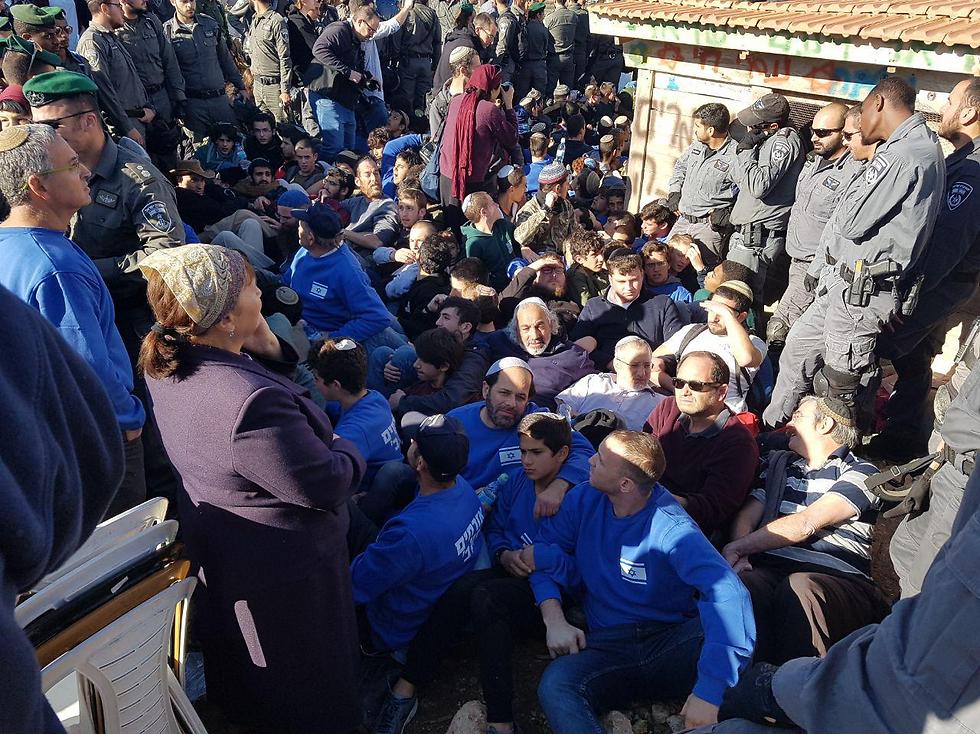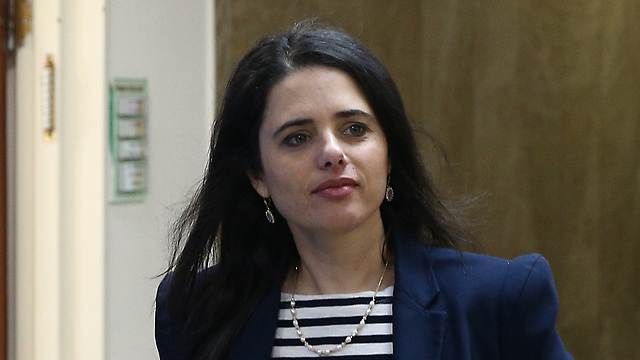
Justice Minister Shaked
Photo: Motti Kimchi
Palestinians petitioning to the High Court of Justice over land disputes with settlers in the West Bank might soon have to go through the Jerusalem District Court first under a new initiative by Justice Minister Ayelet Shaked.

Concurrently, Shaked seeks to have Palestinians land dispute petitions handled by the Jerusalem District Attorney's Office rather than the High Court of Justice Department, which currently handles these cases. The High Court of Justice Department will only handle cases appealing District Court decisions to the High Court.
The move, Shaked claims, is meant to prevent the politicization of land disputes in the territories. She stressed that in some cases, Palestinians would still be able to go to the High Court.
But detractors of the proposal say this is a "distinct political move," arguing the High Court rules based on professional—not political—standards.
The initiative is part a broader move to transfer some authorities from the High Court of Justice to lower courts in an apparent effort to ease the caseload at the highest court in the land.
The justice minister, who is working on completing a draft of the legislation, seeks to achieve three goals with this move: Primarily, the normalization of Jewish settlement in the West Bank.
Additionally, Shaked wants to put an end to what she considers to be discrimination against settlers whose land disputes are not heard at magistrate's or district courts in regular civil and criminal procedures.
Shaked claims that at magistrate's and district courts, petitioners from the West Bank—both Jews and Palestinians—will get a regular factual and evidential hearing, which she says doesn't always happen at the High Court. She claims the tables have turned and rather than the burden of proof be on the plaintiff, it is put on the defendant—meaning the state. Shaked believes this is why settlers have been evacuated by High Court orders quite a few times in the past, for example in Amona and in Netiv Ha'Avot.

Evacuation of settlers barricading themselves at Netiv Ha'Avot carpentry shop (Photo: Elisha Ben-Kimon)
The third objective of Shaked's bill proposal is to take some of the caseload off the High Court, which hears some 2,000 cases on this issue alone every year. Hundreds of these petitions are filed by Palestinians appealing demolition orders issued over illegal construction.
"The caseload the Supreme Court has is unique in the world," Shaked explained. "The High Court has to reject many of the petitions out of hand. The move I'm leading will help transfer the caseload to lower courts."
Shaked also seeks to move some other authorities from the High Court to administrative courts, including freedom of information petitions, petitions against decisions of denied entry or deportation from Israel, and orders barring entry to certain areas.
This would allow both Jewish settlers and Palestinians who were barred from entering some areas of the West Bank to appeal the matter to an administrative court and not just to the High Court.
Shaked also intends to issue an order moving additional authorities of the High Court to administrative courts. The order—which will have to be approved by the Supreme Court chief justice and the Knesset's Constitution, Law and Justice Committee—seeks to "spare" the High Court over 350 cases a year, which will be sent to a lower court.
Among the issues Shaked seeks to move to lower courts are: population and immigration, the Law of Return, humanitarian committees granting entry to Israel, and land allocation by the Israel Land Authority.
Shaked is also working to establish a magistrate's court for administrative affairs, once more in an effort to take some of the workload off the High Court and the administrative courts.
Nevertheless, the High Court will continue hearing particularly sensitive issues, including the decisions concerning IDF troops in the West Bank, petitions against ministers, the establishment of temporary educational facilities, and national zoning plans.

















